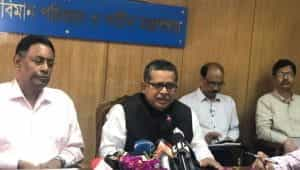Bangladesh Considers Opening Tourist-Only Casinos
In an attempt to boost tourism, the South Asian country is considering establishing zones wherein casinos and gambling are legal. For a majority-Muslim country where religion deems gambling off-limits, this is a strategic proposal to both increase appeal to foreign visitors and to challenge a wave of illicit casinos operating around the country.

The beach at Cox’s Bazar, Bangladesh’s best-known tourist destination ©TripAdvisor
Taking inspiration from other Muslim countries that have created foreigner-only casino regulations like Malaysia, Kyrgyzstan, Kazakhstan, and Turkmenistan, Bangladesh jockeys to enter the crowded Asian casino market.
Compared to Neighboring Countries, Tourists Trickle to Bangladesh
In 2018, Bangladesh welcomed nearly 270,000 visitors, paltry when compared to nearby countries India and Nepal, which had over 10 million and 1.4 million tourists that year, respectively. As the Dhaka Tribune reported on low touristic numbers in Bangladesh, these numbers even include domestic tourists visiting one region of Bangladesh from another. Speculates the Tribune, “Poor infrastructure, lack of recreation, and lack of entertainment facilities are the main reasons people are disinclined to visit other tourist destinations” around Bangladesh aside from its most famous attraction, Cox’s Bazar.
But this shouldn’t have to be so, particularly in a country experiencing the promising GDP growth of Bangladesh, now set to increase to double-digits in the next 5 years. This growth is bolstered by ongoing infrastructural projects such as a new bridge over the Padma River, which alone accounts for 1% of GDP growth, according to Bangladesh finance minister AHM Mustafa Kamal.
Improvements to domestic infrastructure, paired with accessible casinos for tourists to Asia, could be a great boon to the Bangladeshi economy.
A Well-Timed Move Against Illegal Casinos
This move, first announced by Bangladesh’s Civil Aviation and Tourism Ministry Secretary Mohibul Haque about a week ago, directly follows federal busts of illicit casinos earlier in September, implicating high-up Bangladeshi government officials in the process. Due to the implication of government workers in the illegal activity, some suspect national police of aiding those running underground gambling activities by informing those present, thus slowing the bust process.
Still, over the course of the crackdowns beginning September 18, the Bangladeshi police force cracked down on clubs hosting illegal gambling in the nation’s capital, Dhaka, arresting more than 50 and initially detaining over 180. Bangladeshi police have allegedly created a list of the illegal gambling sites in the country, listing 60 in Dhaka alone, which reportedly bring in 1.2 billion Bangladeshi taka ($14 million) nightly. At this time, there is some speculation that up to 100 foreign nationals had been actively participating in the illegal gambling ring.
At Odds with Traditional Religious Values and History
In a country where 90% of citizens are Muslim, gambling is not only illegal but culturally frowned upon — therefore, Haque’s pronunciation of legal casinos strictly for international visitors ruffled some feathers. In fact, anti-gambling laws in Bangladesh date back to the 19th century, when the country was still ruled by the British, an 1867 law called “The Public Gaming Act of 1867.” The law has been updated slightly over time, but the overall ban remains.
How Would These Casinos Work?

Civil Aviation and Tourism Ministry Secretary Mohibul Haque ©UNB
In Mr. Haque’s statement last week, he described allocating legal gambling in four zones of the country’s southeast and southwest: Satkira, Bagerhat, Khulna, and Cox’s Bazar, the most popular tourist destination in Bangladesh. In order to enter the casinos, guests will have to present their passport to casino staff — thus preventing domestic gamblers from entering these casinos, from which they are legally prohibited. Nonetheless, concerns remain that these will not be sufficient means to deter Bangladesh’s enthusiastic gambling population, now recently stripped of their prior illicit casino stomping grounds.
With a rapidly rising GDP and this new move to attract foreign tourists, it seems Bangladesh is eager to throw its hat into the ring of the Asian casino market. With profits dwindling in Macau’s casinos, perhaps this is an ideal moment for a dark horse and totally new casino market like Bangladesh to make its move.



